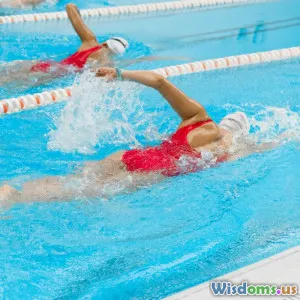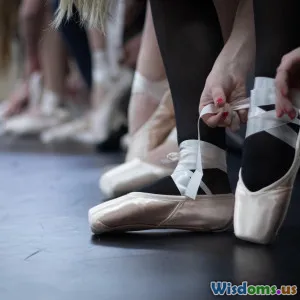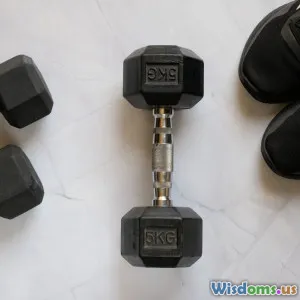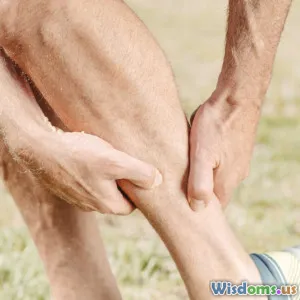
Maximizing Endurance Through Hydration
8 min read Discover how proper hydration enhances endurance for athletes and fitness enthusiasts alike. (0 Reviews)
Maximizing Endurance Through Hydration
Introduction
The pursuit of athletic excellence often hinges on various factors, but one often overlooked element is hydration. Many athletes believe that physical training alone is sufficient to enhance performance. However, comprehensive research in sports science has revealed that optimal hydration can truly maximize endurance. This article explores the critical relationship between hydration and endurance, offering insights and practical tips for athletes and fitness enthusiasts alike.
Understanding Hydration
What is Hydration?
Hydration refers to the process of providing adequate fluids to the body to function optimally. The human body is composed of approximately 60% water, making hydration essential not just for health, but for endurance performance.
The Science Behind Hydration and Endurance
According to a study published in the American Journal of Physiology, dehydration can lead to significant impairments in exercise performance, particularly during endurance activities. When an athlete loses around 2% of body weight through sweat and other losses, their performance can suffer, causing reductions in endurance, strength, and cognitive function. Therefore, maintaining hydration is not just a safety measure, it is a performance necessity.
The Role of Electrolytes
What are Electrolytes?
Electrolytes, such as sodium, potassium, calcium, and magnesium, play a crucial role alongside water in the hydration process. They are essential for nerve signaling, muscle contractions, and regulating fluid balance within the body.
Importance of Electrolyte Balance
During long workouts, athletes not only lose water but also electrolytes through sweat. A depletion in electrolytes can lead to muscle cramps, fatigue, and adversely affect athletic performance. A study published in the Journal of Athletic Training found that athletes who consumed electrolyte-rich fluids performed better during endurance events compared to those who only consumed plain water. This underlines the importance of not just hydrating with water, but also with electrolyte-maintaining beverages.
Hydration Strategies for Endurance Athletes
Pre-Exercise Hydration
Preparing the body before training or competition is vital. Athletes should start hydrating well before their performance. A good rule of thumb is to drink 500-600 ml of water or an electrolyte drink about two hours before exercising. This helps to preload the body with fluids and can minimize dehydration during prolonged activities.
During Exercise Hydration
The American College of Sports Medicine recommends that athletes consume about 400-800 ml of fluids per hour during exercise, depending on the individual’s sweating rate, weather conditions, and the intensity of the workout. This fluid intake can include water, sports drinks, or electrolyte gels to ensure continued balance of electrolytes and hydration throughout the activity.
Post-Exercise Hydration
After exercising, recovery hydration is just as important as pre- and during-exercise hydration. The body needs to replenish lost fluids and electrolytes. Consuming drinks that contain both carbohydrates and electrolytes helps in recovery after longer endurance sessions, facilitating faster restoration of muscle function and energy levels.
Hydration and Mental Endurance
The Cognitive Connection
Hydration doesn't only affect physical performance; it has a significant impact on cognitive function as well. A study in the Journal of Psychophysiology demonstrated that even mild dehydration could impair attention, memory, and overall decision-making processes. For athletes, particularly during competitive events, cognitive endurance can be just as critical as physical endurance.
Tips for Maintaining Cognitive Endurance
- Drink small amounts of fluids regularly rather than large volumes at once.
- Opt for hydrating foods, such as fruits and vegetables, which can offer substantial fluid content.
- Monitor urine color to gauge hydration levels – light yellow generally indicates good hydration, while dark urine is a sign of dehydration.
Practical Hydration Tools and Tracking
Hydration Apps and Devices
In the age of technology, numerous apps can help athletes track their hydration levels and remind them to drink fluids throughout the day. For instance, apps like MyFitnessPal or Hydro Coach allow individuals to log their intake and receive tailored advice.
Smart Water Bottles
Smart water bottles, like the Hidrate Spark, are another modern solution that syncs with mobile devices to track water intake and offer reminders, helping ensure that athletes remain adequately hydrated.
Real-World Examples
Elite Athletes Who Prioritize Hydration
Consider elite triathlete and Ironman champion Heather Jackson, who emphasizes hydration as a cornerstone of her training and recovery regimen. Jackson drinks significantly during her long training sessions and ensures she replaces electrolytes lost during races. Successful athletes often cite proper hydration as a determining factor in their performance.
Research Findings from Various Sports
Research shows that marathon runners, cyclists, and swimmers can all improve their performance through maintained hydration practices. For instance, a study published in the International Journal of Sports Medicine found the implementation of a guided hydration strategy not only improved the finish times of runners but also kept dehydration at bay during training.
Conclusion
In the realm of sports science, maximizing endurance through hydration is invaluable. Athletes who understand the importance of proper hydration practices—from preparation and participation to recovery—are better positioned to perform at their best. Hydration is not simply a background concern; it shapes the very foundation of athletic performance. Whether you're a seasoned professional or a weekend warrior, remembering to drink appropriately and consume balanced fluids can keep endurance levels at their peak.
In conclusion, take the necessary steps to enhance your hydration strategy, noting its impact on endurance. As the old motto goes, “Stay hydrated and stay strong!”
Rate the Post
User Reviews
Popular Posts




















